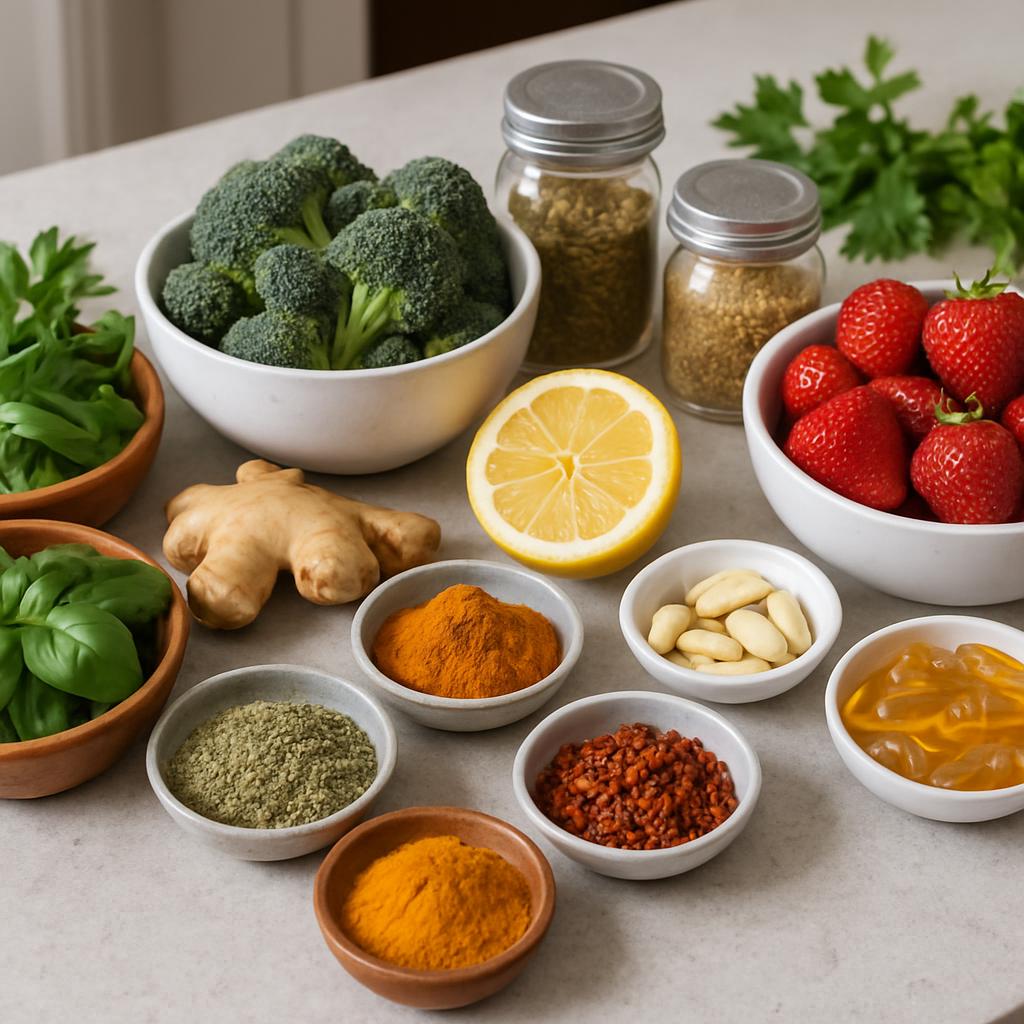For individuals with sickle cell disease (SCD), maintaining optimal health hinges on more than medical treatments alone—it requires a strategic approach to nutrition. Due to chronic hemolysis (breakdown of red blood cells) and increased metabolic demands, people with SCD often struggle with anemia, delayed growth, and frequent pain crises. Fortunately, a combination of a balanced diet, nutrient-rich juicing, and targeted supplementation can help stabilize red blood cell production, reduce dehydration, and ultimately lessen the severity and frequency of painful vaso-occlusive episodes.
The Importance of a Balanced Diet
A well-rounded diet forms the cornerstone of SCD management. Because red blood cells in SCD patients live only about 16–20 days—far shorter than the typical 120 days—the body must constantly rebuild its supply, driving up calorie and protein requirements nemours.orgsicklecellsociety.org. Key dietary priorities include:
- Caloric and Protein Density: Meals and snacks rich in lean proteins (e.g., poultry, fish, legumes) and healthy fats support the relentless demand for new cell synthesis. Adequate protein also aids in tissue repair following episodes of acute pain.
- Micronutrient Coverage: Vitamins and minerals—particularly folate (vitamin B9) and zinc—play critical roles in red blood cell formation and immune function. Experts recommend 400–800 µg of folic acid daily to boost erythropoiesis and help prevent anemia nemours.orgmedicalnewstoday.com. Zinc, found in meats, dairy, and whole grains, supports immune resilience and may shorten recovery from sickling episodes.
- Hydration: Chronic hemolysis and poor kidney concentrating ability heighten the risk of dehydration, which in turn increases blood viscosity and triggers sickling. Drinking ample water (aiming for at least 8–10 cups daily, adjusted for age and activity) keeps blood flow smooth and wards off crises nemours.orgmedicalnewstoday.com.
The Power of Juicing
Juicing can be a practical and delicious way to amplify both hydration and nutrient intake. By extracting the vitamins, minerals, and phytonutrients from fruits and vegetables into a single glass, patients can more easily meet their elevated needs—especially when appetite wanes during illness. Recommended juices include:
- Leafy Green Blends: Spinach or kale combined with apple and cucumber delivers folate, vitamin C, and natural electrolytes essential for red cell regeneration.
- Citrus-Fortified Juices: Calcium-fortified 100 % orange juice provides vitamin C to enhance iron absorption and supports bone health through added calcium—crucial given the risk of osteoporosis and avascular necrosis in SCD eatright.org.
- Beet and Carrot Juices: Rich in nitrates and beta-carotene, these root-vegetable blends may promote nitric oxide availability, helping to dilate blood vessels and reduce endothelial stress.
Juicing should complement, not replace, whole-food meals, ensuring that fiber intake remains sufficient to support gut health.
The Role of Nutritional Supplementation
Even with an ideal diet, supplementation often proves necessary to correct deficiencies and provide therapeutic benefit:
- Folic Acid: Standard of care in SCD management, folic acid supplementation (400–800 µg daily) replenishes rapidly depleted stores and supports steady hemoglobin production nemours.orgpmc.ncbi.nlm.nih.gov.
- Vitamin D: Many individuals with SCD exhibit low vitamin D levels, exacerbating bone fragility and pain. Supplementation (per provider guidance) can improve musculoskeletal health and modulate inflammation cdph.ca.gov.
- Amino Acids & Nitric Oxide Precursors: Trials of arginine (500 mg) and citrulline have demonstrated improvements in endothelial function by boosting nitric oxide synthesis, which may attenuate vaso-occlusion and pain severity dovepress.com.
- Specialized Formulations: Emerging evidence suggests that combination supplements—such as folic acid paired with proprietary blends like EvenFlo—can elevate hemoglobin levels and reduce crisis frequency when used under medical supervision pmc.ncbi.nlm.nih.gov.
Always consult a hematologist or registered dietitian before initiating any new supplement, as over-supplementation (e.g., iron) can worsen SCD complications.
Conclusion
While no diet or supplement regimen can cure sickle cell disease, leveraging a thoughtful nutritional strategy empowers patients to strengthen their bodies’ natural defenses against anemia, dehydration, and painful crises. By combining a calorie-rich, micronutrient-dense diet with hydrating juices and tailored supplementation, individuals with SCD can enjoy improved energy, reduced hospitalizations, and a higher quality of life—turning each meal into a step toward lasting wellness.
P.S. As I write this, I haven’t experienced a sickle cell crisis in over 13 years, which is astonishing even to me. Before embracing a holistic approach to managing the disease, I relied on daily pain medication and was often hospitalized due to severe crises or required mandatory bed rest to prevent one from occurring.
